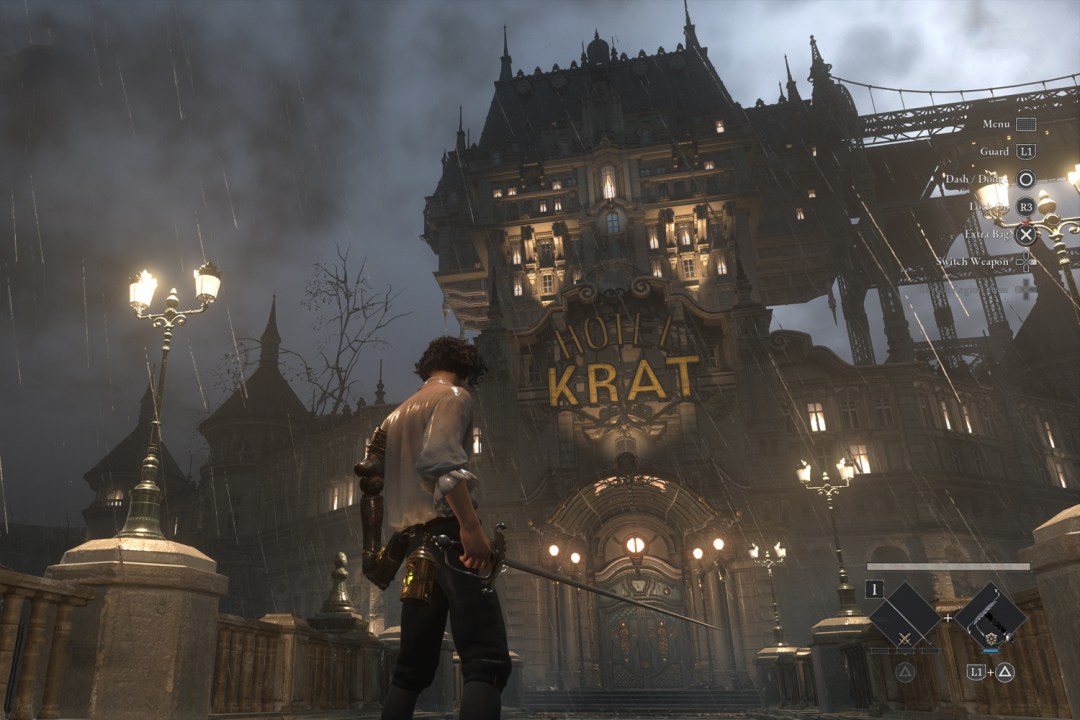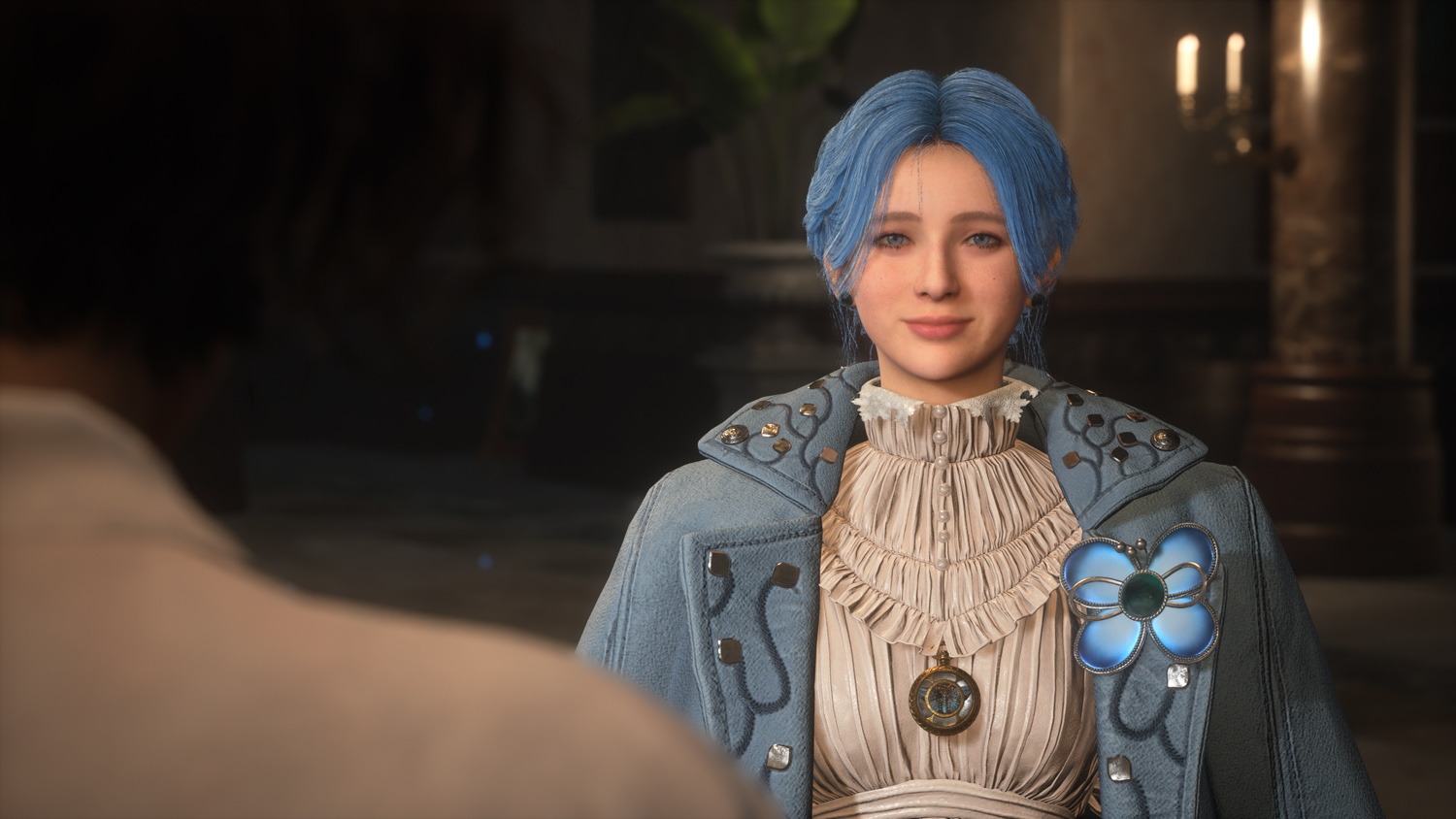Lies of P review: pulling the strings
The story of Pinocchio retold as an unforgiving imitation of Bloodborne

Stuff Verdict
A dark intriguing twist on Pinocchio and haunting visuals doesn’t stop this soulslike from being too frustratingly difficult and derivative for its own good.
Pros
- Looks hauntingly beautiful
- Interesting weapon customisation
- Intriguing dark twists on Pinocchio
Cons
- Feels a bit too derivative
- Too linear, with limited options if stuck
- Frustratingly unfair boss fights
Pinocchio always had a dark side, even in Disney’s beloved 1940 animation. It was, after all, a cautionary tale for disobedient tykes with themes of child abduction thrown into the mix. But retelling this story as a hard-as-nails PC and console game made Lies of P an intriguing proposition ever since it first broke cover.
For many it feels the closest we’ll get to a next-gen Bloodborne, which is still seemingly doomed to remain a PS4 exclusive. Last year’s Steelrising came close, with a clockwork alt-history take on the French Revolution, but the resemblance developers Neowiz and Round8’s game has to Fromsoft’s gothic masterpiece is almost uncanny. It doesn’t forget to inject some of its own ideas, either.
So is Lies of P a real boy deserving a place in the hallowed halls of the soulslike genre, or is it just a wooden imitation?
Arts and Krat



Lies of P reimagines Pinocchio as a young man with the foppish good looks of Timothee Chalamet, and relocates from Italy to the fictional city of Krat, inspired by the 19th Century Belle Époque period. Other twists from the classic children’s tale include Gepetto being the creator of the city’s automatons, which have suddenly gone on a murderous rampage; Gemini (AKA Jiminy Cricket) is now a mechanical cricket you carry in a lantern on your waist, helping to light your way and chatter as you explore.
This sounds like a fresh take on the tale, but the gameplay doesn’t try to hide its Bloodborne influences, which often feel too close for comfort. The way these dark deserted streets have dangerous enemies (and dogs, of course there’s dogs) prowling at every corner; the way your character animates as they push open big heavy doors to new areas; even the sound design feels eerily similar, such as how one early boss you fight is supposed to be an automaton yet howls like a beast. And of course, the human residents of the city are also being inflicted by some kind of disease that’s also causing some to lose their minds.
We admit it all looks rather delectable, especially with the High Frame Rate mode that delivers 4K resolution at 40fps – it’s a middle ground between the usual detail and performance presets, and was our preferred setting. But even then, it’s difficult to get past how familiar it all feels. That makes the moments when it tries to deviate all the more noticeable, and not always in a good way.
Puppet master



Much like FromSoftware’s games, combat in Lies of P is brutal and unforgiving. Actions are limited by a stamina gauge, while death means you drop your accumulated Ergo (your currency for levelling up or purchasing items and upgrades). Your fighting style is a combination of Bloodborne’s trick weapons and Sekiro’s arm customisation, letting you mix and match weapon heads and handles, and swap out a mechanical arm for different effects, such as a burst of electricity to shock enemies or Flamberge to set them on fire.
It’s in the defensive aspects where Lies of P tries to distinguish itself. Grey damage taken when guarding attacks can be regained by landing your own blows, or you can avoid damage altogether by perfect-guarding. But unlike the parry-and-riposte of Bloodborne, this is actually more like Sekiro’s deflections, with multiple perfect guards eventually putting your foes in a staggerable state.
There’s no gauge to see how close the enemy is to reaching this state, though, until the border of their health bar suddenly flashes white. Then you’ve got to land a charged attack, which takes long enough that your opponent can interrupt with a strike of their own. Bide your time for an opening and the stagger window quickly disappears. Worse still, we frequently found perfect-guarding attacks would leave just enough distance to put us out of range of a counterattack.
Topping that off, your foes also have grey health; if you don’t keep up the offensive, they’ll slowly recover. The odds keep shifting against you, with your dodge becoming completely useless against bosses with suspiciously wide-ranging attacks. It feels like your only solution is to master perfect-guards. In other words you’re encouraged to play aggressively, and can expect brutal punishes if you don’t git gud.
Yet compared to our experiences with the demanding Sekiro and Wo Long: Fallen Dynasty, Lies of P’s mechanics feel much more frustrating in terms of precision, consistency and readability. Even its one seemingly useful mechanic, where successful attacks and counters recharge a healing item when you’ve run out, feels like it’s mocking you. You wouldn’t have run out of heals in the first place if you were already good at perfect-guarding, right?
No lies detected




Compounding Lies of P’s soul-crushing bosses is that the game is also fairly linear. We don’t just mean that in comparison to Elden Ring, but even Bloodborne’s Yharnam had branching paths leading you to optional areas or a different order you could tackle its challenges.
In fairness, you can encounter optional fights or unlock a side quest within each area of Krat. It also does a good job of giving you icons as hints as to the nearest checkpoint you need to fast-travel back to when you pick up an item that’s related to a quest. But once you reach the boss, if you’re stuck, there’s nowhere else you can go and little else to do except grind. At the very least, it’s more generous about your Ergo, so if you fall to a boss, you can recover it just before the boss gate.
Even previously-defeated enemies can drop Star Fragments, which can summon an AI-controlled Spectre to help during boss fights. It’s the one concession towards difficulty, if a little arbitrary compared to the player-controlled allies you can call upon in other soulslikes. They aren’t that reliable, doing little to keep themselves from being stomped on, but so unfairly weighted are some of the boss fights that it often feels impossible without calling for back-up. There’s one where you’re basically being pounced by a gang leader and his cronies, while quite a few actually have even tougher second phases to learn with a second health bar to boot. It’s somewhat antiquated that even this helping hand is reliant on a consumable resource you’ll need to grind for.
It’s a shame because the game often feels like it’s striving for something different and compelling, such as the way you can tinker with your protagonist with new upgrades via a hilariously named P-Organs system, or options to lie or tell the truth in dialogue that subtly effect the ending. It’s held back either by sticking too close to the shadow of the original puppet masters at FromSoftware, or getting its strings tangled up with too much that ends up tripping us up more than it helps us play better.
Lies of P verdict


Much like all the imitators that have come before it, Lies of P does its hardest to beat FromSoftware at its own game, and from the outset with its gorgeous visuals and inspired twist on Pinocchio, it almost convinces before the uncanniness gets too much.
Any good ideas it has are mercilessly crushed by its frustrating combat mechanics, which feel designed to punish for the sake of it, rather than giving you the tools to improve and overcome the obstacles you face, and in turn show up the derivative and limited structure of its world. Masochists may simply take this as a challenge, but many others might fare better with wishing upon a star for the Bloodborne remaster they deserve.
Stuff Says…
A dark intriguing twist on Pinocchio and haunting visuals doesn’t stop this soulslike from being too frustratingly difficult and derivative for its own good.
Pros
Looks hauntingly beautiful
Interesting weapon customisation
Intriguing dark twists on Pinocchio
Cons
Feels a bit too derivative
Too linear, with limited options if stuck
Frustratingly unfair boss fights



